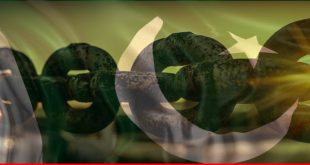A welfare state is an idea of government in which the state plays a major role in the promotion and protection of the economic and social well-being of its people. Such a government is a part of the lives of its people as it caters to the material, physical and social demands of its people. The main aim of a welfare state is to primarily generate economic and social equality and to ensure fair access to justice, well standards of living, freedom of faith and speech and complete transparency in decision making of executives and officials.
The services that the welfare state should offers include sustenance, insurance, health services, unemployment, housing, education, days off for injuries and sickness, extra income in special condition and equivalent wages by wage controls. Other services that a welfare state offers include child care, public transportation, social public goods such as libraries and public parks, swimming pools etc.
Some of the services offered could be financed through the government insurance schemes or taxes gathered by the government. And above all state should be accountable to the citizens. In Pakistan, many leaders of the state have promised to make the country into a welfare state but still we hope for the best and when that time will come?
Pakistan lacks an overarching social strategy embodied within a social justice structure. The Government of Pakistan’s aspirations to become a welfare state are far from attainable in the predictable future. The government needs to analyze its social welfare strategies in terms of pragmatic and attainable long term targets.
Towards Welfare State
Is relief from poverty possible without social equality? Can eloquently verbal words on the significance of a welfare state by our ministers, put an end to starvation in the country, where making ends meet and earning an honest living is no mean feat. The government gives absolutely no safety nets for the beat up Pakistani citizenry. As many as 58.7 million citizens in the country are living in multidimensional poverty with 46 percent of rural population and 18 percent of urban households declining below the poverty line. What is needed is a radical shake up! Getting perfect bliss might not be possible for any underdeveloped or developed state but a welfare state making enough contributions to the citizens, well being is not that far fetched a plan. Islamic thoughts put the welfare of the citizenry above that of its leaders. The 63 years has been past and the leaders still fail to get the basic doctrine that the welfare of each citizen is bound up in the welfare of all. We have many corrupt leaders who have been more passionate about their popularity, bank accounts and their generations then the plight of the common man. The query today is can our government manage a welfare system? Up till now welfare in the country has been more about egos of the elite and less about the trials of the masses.
Population Welfare Program
Lessening in population growth is one of the main priorities of the government as this will assist in achieving a balance between country’s resources and population leading to sustainable socio-economic progress. In this context Population Welfare program is an ongoing social progress endeavor operating within the framework of nationwide agreed broad-based and strategically focused population and growth strategies. Since its introducing the Population Welfare Program as gone by various stages in terms of financial and administrative setup. The welfare centers are Family Welfare Center (FWC), Reproductive health services centers, Reproductive Health Services-A (RHS-A) centers, Reproductive Health Services-B (RHS-B) centers and Regional Training Institutes (RTIs).
Youth Business Loan
Prime Minister’s youth business loan for young citizens between the age group of 21-45 years, is planned to give subsidized financing at 8.0 percent service charges per annum for almost 100,000 beneficiaries, by designated financial institutions. Small business loan with tenure up to 8-year, with 1st year grace time, and a debt: equity of 90:10 will be disbursed to SME beneficiaries in the country. It has a 50 percent quota for female and 5 percent quota for families of disabled persons, martyrs (shaheeds) and widows.
PSLM
The PSLM Project is planned to give social and economic indicators in the alternate years at district and provincial levels. The PSLM was started during 2004 and will continue up to June 2015. The data generated by surveys is utilized to help the government in formulating the poverty lessening policy as well as growth ideas at district level and for the rapid appraisal of program in the overall context of MDGs. It gives a set of representative, population-based predicts of social indicators and their development under the MDGs/PRSP. For MDGs, UN has set 18 goals for 48-indicator for its member countries to get by 2015. The government has committed to implement 16 goals and 37-indicator out of which 6 goals and 13-indicator are administered by PSLM surveys. Another significant aim of the PSLM survey is to try to organize the distributional impact of growth programs; whether the poor have advantaged from the program or whether risen government expenditure on the social sectors has been captured by the better off.
Conclusion
No doubt, the idea of a welfare state was introduced by the Muslims but has been adopted by everyone except for Pakistan, proving that the attempts our forefathers made in achieving a separate Islamic state has brought no relief to the common man but has opened doors for dishonest and corrupt citizens who have robbed the state and the common man. BISP which is supposed to aid Pakistan in becoming a welfare state remains far from the truth. Despite of these, it is still said Pakistan an Islamic welfare state where equal social and economic rights would be ensured for all.
 PAGE Blog Business Weekly Magazine
PAGE Blog Business Weekly Magazine

